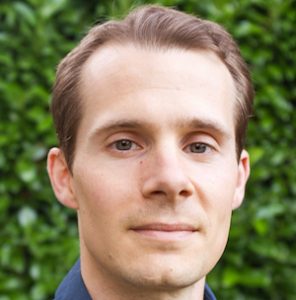At some point in the last year or so, I started listening to the Epidemiology Counts podcast. I was thrilled to learn that the host, Bryan James, is a Chicago local at Rush University — and he’s a CrossFitter at Goose Island CrossFit. Bryan and I recently collaborated on an article for BarBend about controlling the spread of Covid in gym, as well: COVID In Gyms: What The Research Says About Mitigating Spread.
In his day job, Bryan’s research focuses on the epidemiology of Alzheimer’s disease, so I wanted to get his take on some common misconceptions about Alzheimer’s. Most of us have a family member who has been touched by Alzheimer’s or dementia, and my family is no different. Bryan’s work focuses on population-level analysis of some of the things that give us “buffering capacity” to delay the onset of dementia, as well as some of the hidden costs of Alzheimer’s and dementia that don’t always show up in our statistics.
In Bryan’s role as a podcast host, he is also an expert communicator about nuanced epidemiological topics and public health. There’s a lot to talk about with the litany of public health communication catastrophes we’ve seen through the Covid-19 pandemic, as well as the descent into epistemic nihilism playing out daily on our social media feeds. Bryan has been wrestling with some of these problems in his own work, so his insight here is invaluable.
Check out the full conversation with Bryan below
Listen Here
- iTunes
- Overcast
- Google Play
- If you’re enjoying the show, why not a leave a review? It makes a difference in terms of other people finding the show.
Learn more from Bryan here:
- Podcast: Epidemiology Counts | Episode 1: Why should I trust that new health study?
- Website: Rush Profile
- Twitter: @bryandjames | @rushalzheimers
- Selected Publications: Late-Life Social Activity and Cognitive Decline in Old Age | Contribution of Alzheimer disease to mortality in the United States
Show Notes:
-
[01:51] The difference between Alzheimer’s disease and dementia — and the role of cognitive reserve capacity in preventing dementia
-
[13:36] How to determine causality in a multifactorial complex system — and the changes in “prevalence” and “incidence” of Alzheimer’s over time
-
[24:50] What does epidemiology tell us about developing cognitive reserve capacity?
-
[33:29] Bryan’s paper on the correlation between social activity and Alzheimer’s
-
[41:47] Controlling for reverse causality and potential outside causes in epidemiological research
-
[50:04] The challenges in public health communication and the flaws in the way epidemiology research is presented in the media.
-
[01:03:24] Misinformation, publicly communicating nuanced topics, combatting epistemic nihilism, and restoring trust in institutions that have made public mistakes
-
[01:10:10] The Epidemiology Counts podcast and properly weighting the information from observational studies
Links and Resources Mentioned:
- Grandpa Simpson walking in and out
- Lewy body dementias
- TDP-43 Pathology, Cognitive Decline, and Dementia in Old Age
- Amyloid plaques
- Neurofibrillary tangle
- Cognitive reserve in ageing and Alzheimer’s disease
- Epidemiology, Prevalence and Incidence
- Image of Alzheimer’s Brain vs Normal Brain
- Reverse Causality
- U.S. POINTER Study
- Person, woman, man, camera, TV
- “Person, Woman, Man, Camera, TV” Video
- MoCA Montreal – Cognitive Assessment
- Assessment of memory complaint in age-associated memory impairment: the MAC-Q
- Controlling for a variable
- Effect of purpose in life on the relation between Alzheimer disease pathologic changes on cognitive function in advanced age
- “SARS-CoV-2 and Potential Airborne Transmission” from the CDC
- “FAQs on Protecting Yourself from Aerosol Transmission” from Jose-Luis Jimenez
- “Still Alive” Astral Codex Ten
- Gell-Mann Amnesia
- Malleus Maleficarum
- Prior probability




